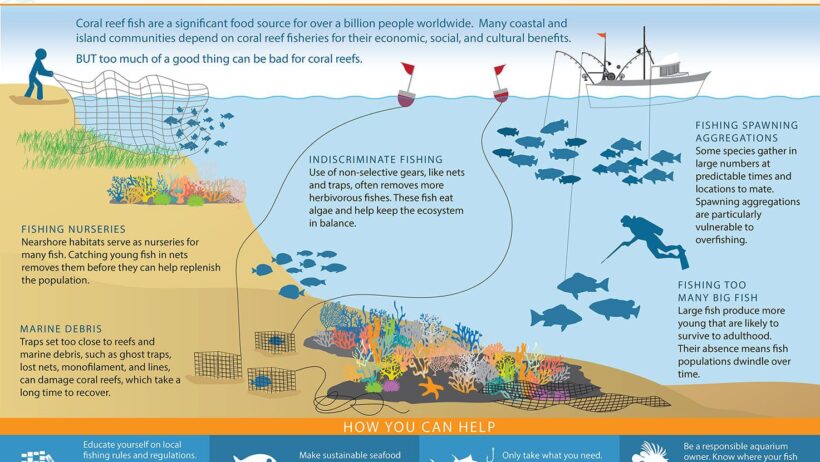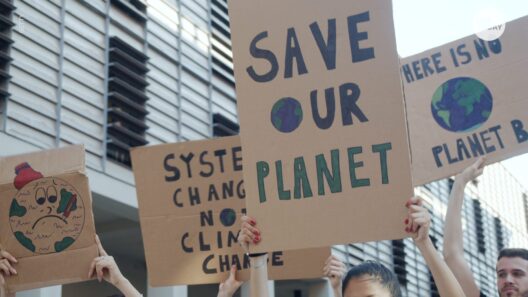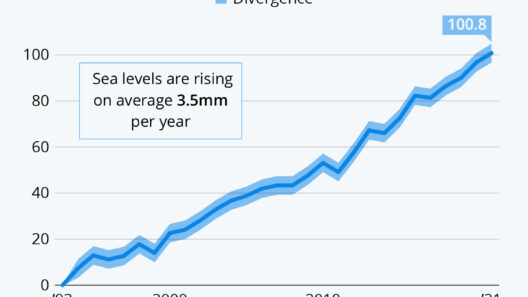Rising sea levels present one of the most significant threats to coral reefs, which are already facing multifaceted pressures from climate change, pollution, and overfishing. Understanding the risks associated with ocean-level increases is crucial for the preservation of these vital ecosystems. Coral reefs, often termed the “rainforests of the sea,” are home to a stunning variety of marine organisms and play a crucial role in biodiversity preservation, coastal protection, and the global economy. This article seeks to delve into the intricate relationship between rising sea levels and coral reefs, highlighting the implications for marine life and the ecosystems they support.
Impacts of Ocean-Level Rise on Coral Reefs
Coral reefs are incredibly sensitive to their environmental conditions, and slight changes in sea level can lead to devastating consequences. First and foremost, the physical loss of habitat is a primary concern. As sea levels rise, the distribution and health of coral ecosystems can be adversely affected. Reefs that are located near the ocean surface may find themselves submerged beyond their optimal depth for sunlight exposure. Coral polyps, the tiny organisms that build the reef structure, rely heavily on sunlight for photosynthesis conducted by the symbiotic algae, known as zooxanthellae, that live within their tissues. When submerged too deeply, the amount of light reaching these corals diminishes, impairing their ability to survive and thrive.
Furthermore, increased sea levels contribute to sedimentation, which can smother coral reefs. Erosion of coastal areas often leads to increased sediment being washed into the ocean. This sediment can obscure sunlight and settle on coral surfaces, blocking the light necessary for photosynthesis and hindering growth. The silt accumulation can also restrict the natural flow of water, which is vital for the oxygenation of corals and the nutrients they require. This not only affects the coral themselves but also disrupts the myriad species that depend on healthy reefs for shelter, food, and breeding grounds.
Thermal Stresses: The Ripple Effects of Rising Waters
Another consequential effect of rising sea levels is the exacerbation of thermal stress on coral reefs. As sea levels rise, they are often accompanied by warmer ocean temperatures. Corals are already facing significant challenges from thermal anomalies, which can lead to bleaching events. During bleaching, corals expel their symbiotic algae due to stress, losing not only their color but also their primary food source. A rise in sea level can accelerate these warming events by altering ocean currents and heat distribution. This precarious situation threatens the delicate balance of coral reefs, making them increasingly vulnerable to environmental fluctuations.
In addition to the direct physiological impacts on coral, these changes can set off a chain reaction in the broader marine ecosystem. Fish populations that depend on coral reefs for habitat are likely to decline if the reefs themselves are damaged. Healthy reefs provide breeding grounds and resources for numerous species. Thus, when corals suffer, the repercussions ripple through the food chain, diminishing fish stocks that local communities may rely on for sustenance and economic activity.
Coastal Protection and Human Communities
Beyond their ecological significance, coral reefs play a critical role in protecting coastal communities from the impacts of sea-level rise. Coral formations act as natural barriers that dissipate wave energy, reducing coastal erosion and flooding risk. As sea levels rise and storm surges become more frequent and intense due to climate change, the protective function of coral reefs becomes even more vital. Coastal communities without healthy reef systems face increased vulnerability to hurricanes, tsunamis, and other natural disasters, resulting in potential economic losses and threats to human life.
Moreover, coral reefs contribute to the livelihoods of millions of people worldwide, particularly in developing coastal nations. Tourism centered on coral ecosystems, such as snorkeling and diving, generates substantial income. The deterioration of these reefs due to rising sea levels means that local economies could suffer significantly. The loss of biodiversity and marine life associated with coral reefs also threatens food security for communities that depend on fishing as a primary source of nutrition and income.
Addressing the Challenge: Conservation and Adaptation Strategies
Combating the effects of rising sea levels on coral reefs requires a multifaceted approach involving conservation, community engagement, and policy initiatives. Effective marine protected areas (MPAs) can provide a refuge for corals from the stresses of human activity, including overfishing and pollution. By restricting fishing practices and promoting sustainable resource management, these areas can help preserve the ecological integrity of coral ecosystems.
Moreover, restoring damaged reefs through active interventions, such as coral gardening and artificial reefs, offers a way to bolster their resilience. Restoring coral populations can not only enhance biodiversity but can also increase the likelihood of coral reefs withstanding the adverse impacts of climate change, including rising sea levels.
Community involvement is paramount. Local populations must be engaged in management strategies and conservation efforts. Through education and awareness about the importance of coral ecosystems, communities can take actionable steps to protect their marine resources, remain adaptable to changing conditions, and promote sustainable practices.
Lastly, addressing the broader issue of climate change through international cooperation and policy implementation is essential for any long-term solution. Reducing greenhouse gas emissions and committing to climate agreements will ultimately alleviate the effects of rising sea levels, safeguarding coral reefs for generations to come. Protecting these invaluable ecosystems requires collective action, foresight, and a universal commitment to environmental stewardship.
In conclusion, the risks posed by rising sea levels to coral reefs extend beyond environmental degradation; they threaten ecological balance, community resilience, and economic sustainability. As stewards of our oceans, we must prioritize the preservation of coral reefs in the face of escalating sea-level rise. Understanding the risks and taking impassioned action can foster thriving coral ecosystems amidst a changing climate.






